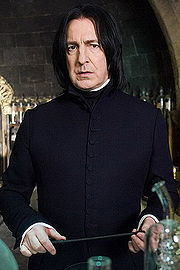 This is the kind of image of John the Baptist I like much better. It's done in a Mexican "retablo" style. It's much less fussy than the last image I posted, and the imagery is all there. You can see the banks of the River Jordan, John's animal skin clothing, his shaggy beard. All that's missing are the locusts and a honeycomb.
This is the kind of image of John the Baptist I like much better. It's done in a Mexican "retablo" style. It's much less fussy than the last image I posted, and the imagery is all there. You can see the banks of the River Jordan, John's animal skin clothing, his shaggy beard. All that's missing are the locusts and a honeycomb.My cousin, Anthony, told me that the style of cross he holds, a long, thin reed-like cross, shows that John was martyred. He was beheaded for Herodias (a.k.a. Salome) - that's another story for another time[Mark 6:14 - 29].
John is pointing away from himself and the water, towards heaven. He says, "I baptize with Water, but the one who comes after me will baptize with the Spirit" [Matthew 3:11] which comes down from heaven, in the form of a bird, when John baptizes Jesus [Matthew 3:16].
I love that John led a simple life. That he relied on the land. I like that he comforted people by washing away their sins. I like that his was "a cry heard in the wilderness." I have felt, at various times in my life, that I needed to hear that cry, or that I needed to be led out of the wilderness. And whenever that feeling comes up, I try to find an image of John the Baptist to make me feel better.
He is considered the "precursor" to Jesus. He is a bridge in many ways: between the Old and New Testaments - the old and new prophets, for some, between the disciples and us, between Jesus' family and the rest of the world. The story goes that he was born 6 months before Jesus. [Luke 1 26 - 38 *] John's feast day is on June 24th, and apparently it was celebrated in the same way as Christmas day is in the Church.
The whole liturgy of the day, repeatedly enriched by the additions of several popes, was in suggestiveness and beauty on a part with the liturgy of Christmas. So sacred was St. John's day deemed that two rival armies, meeting face to face on 23 June, by common accord put off the battle until the morrow of the feast (Battle of Fontenay, 841). "Joy, which is the characteristic of the day, radiated from the sacred precincts. The lovely summer nights, at St. John's tide, gave free scope to popular display of lively faith among various nationalities. Scared [sic] had the last rays of the setting sun died away when, all the world over, immense columns of flame arose from every mountain-top, and in an instant, every town, and village, and hamlet was lighted up" (Guéranger). The custom of the "St. John's fires", whatever its origin, has, in certain regions, endured unto this day. CitationNow, as I posted about before, one of the things that fascinates me about the Church and the Liturgical Calendar, is its use of the agrarian calendar, how it incorporated local people or deities into Saints, and scheduled saints' days for important days in the Solar calendar (like Christmas, Candlemas, Easter, Plain Time, Michaelmas,All Souls Day/Halloween). "St John's fires" are likely an adoption of the fires associated with Mid-Summer celebrations which involved fires burning all night, dancing and feasting. Citation
The similarity between the Winter and Summer Solstice dates and Jesus' and John's birthdays is not a coincidence. There are no real markers in the Bible to tell us when either would have been born, only that John was 6 months before Jesus (if you take the angels' word for it in the Annunciation * story).
John says, "As I decrease, he will increase." like the Sun, whose light decreases every day from Summer Solstice (June 21 or so) to Winter Solstice (December 21st or so). From Jesus' birthday, Light increases. Nice. I will probably talk even more about this in coming posts, but this is one of the things that fascinates me about religion and spirituality. It's like water which will always find its own level, and seep into our lives. The old religions didn't disappear, they just morphed. The cycle of Nature is still important, and visible.
I use the Church calendar to help remember the natural cycle of life, which makes my spirituality (or my religion, whichever you prefer) more relevant for me.











No comments:
Post a Comment